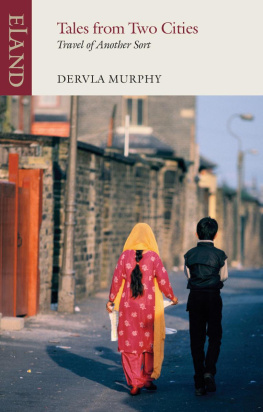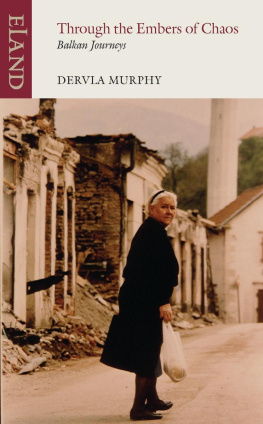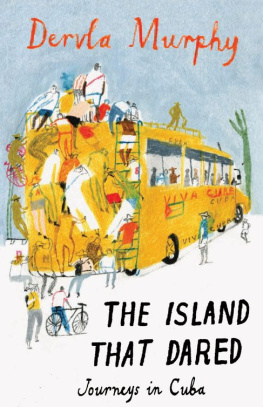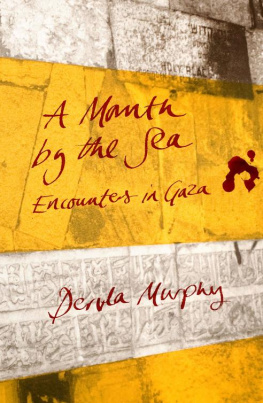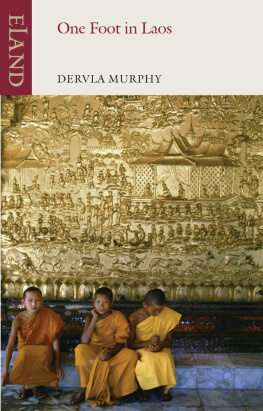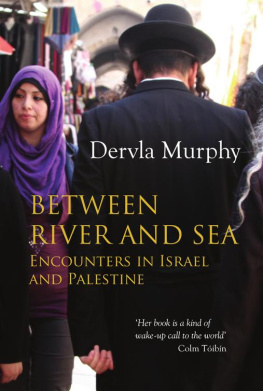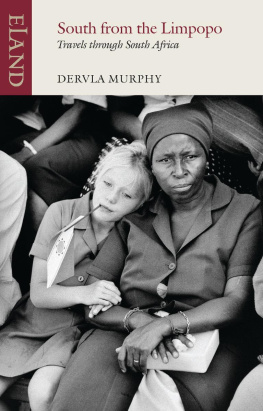Dervla Murphy - Tales from Two Cities: Travels of Another Sort
Here you can read online Dervla Murphy - Tales from Two Cities: Travels of Another Sort full text of the book (entire story) in english for free. Download pdf and epub, get meaning, cover and reviews about this ebook. year: 2017, publisher: Eland Publishing, genre: Politics. Description of the work, (preface) as well as reviews are available. Best literature library LitArk.com created for fans of good reading and offers a wide selection of genres:
Romance novel
Science fiction
Adventure
Detective
Science
History
Home and family
Prose
Art
Politics
Computer
Non-fiction
Religion
Business
Children
Humor
Choose a favorite category and find really read worthwhile books. Enjoy immersion in the world of imagination, feel the emotions of the characters or learn something new for yourself, make an fascinating discovery.
- Book:Tales from Two Cities: Travels of Another Sort
- Author:
- Publisher:Eland Publishing
- Genre:
- Year:2017
- Rating:4 / 5
- Favourites:Add to favourites
- Your mark:
- 80
- 1
- 2
- 3
- 4
- 5
Tales from Two Cities: Travels of Another Sort: summary, description and annotation
We offer to read an annotation, description, summary or preface (depends on what the author of the book "Tales from Two Cities: Travels of Another Sort" wrote himself). If you haven't found the necessary information about the book — write in the comments, we will try to find it.
Tales from Two Cities: Travels of Another Sort — read online for free the complete book (whole text) full work
Below is the text of the book, divided by pages. System saving the place of the last page read, allows you to conveniently read the book "Tales from Two Cities: Travels of Another Sort" online for free, without having to search again every time where you left off. Put a bookmark, and you can go to the page where you finished reading at any time.
Font size:
Interval:
Bookmark:
For Margaret Fogarty
without whose practical help, moral support and many clarifying words of wisdom this book could not have been written.
It is always an impertinence for a man to claim to write about a community of men, whether his own or another. He cannot avoid talking about them as if they were objects under a microscope, and this denies them their subjectivity and dignity. Further, he cannot avoid making general observations about them, and that involves denying them their uniqueness. Such general observations again have an air of unreality about them. While they might describe some members of a society accurately, they never fit all.
BHIKHU PAREKH




Many people have contributed in diverse ways to this book. Some, who will violently disagree with certain passages, would prefer not to be named. But my gratitude goes to them no less than to: Diana, Jock and John Murray, Jim Rose, Brenda and Keith Thomson, Jenny Woodward and my neighbours in Manningham and Handsworth who appear in these pages not under their real names but without whose friendship, trust and guidance this book could never have been written.
The Joseph Rowntree Charitable Trust made it possible for me to devote more than two years to this project but are in no way responsible for the views expressed or for any inadvertent factual errors.

The seed of this book was sown in the autumn of 1966. While cycling from London to Edinburgh I met many representatives of ethnic minorities, the majority then comparative newcomers to Britain. From Scotland I wrote to my publisher, describing this journey, and in response he suggested a book on Brown and Black immigrants. Although the subject tempted me, I doubted my ability to tackle it and not until 1983 did I find enough courage to accept the challenge. But my 1984 activities were curtailed first by a peculiarly debilitating form of hepatitis, acquired in Madagascar, and then by a frolicsome bullock who broke my back on a riverbank in Ireland. So the project was not begun until January 1985.
Nothing in my life had prepared me for residence in deprived urban areas, as distinct from reading about them or discussing them with involved friends. After a few months I began to feel slightly peculiar on edge, restless, in an odd way under stress despite the increasing fascination of my work. Only then did I realise that never before had I been confined for so long to a city, or even a big town. As a truly rural animal, this new experience in middle-age almost over-taxed my adaptability. Curiously enough, the obvious horrors of urban life traffic noise, crowds, polluted air, over-heated shops and offices bothered me no more than the many unnatural minutiae. Like taking clothes to a laundrette, full of baffling machines, instead of washing them in a tub and hanging them on a line between apple-trees. And swimming in a chlorine-flavoured indoor pool instead of a river. And using fire-lighters instead of kindling gathered in a wood. And never seeing the night-sky or being able to enjoy the weather. In the country, every sort of weather is pleasurable: gales, frost, heat, rain, snow. In cities, each weather mood merely exacerbates some nuisance litter blown in ones face, burst pipes, effluvia from rotting garbage, sprays of oily water, treacherous piles of dingy snow. At the end of my exile I was no longer puzzled by youthful vandalism, drug-addiction and despair.
As a newcomer in Manningham and Handsworth, I had to explain to some of my neighbours, and to local community leaders and Race Relations Industry (RRI) workers, that I am neither a journalist nor an academic, that I belong to no political party or pressure group and have no religious affiliations. This thumb-nail self-portrait baffled many. For some thirty years, race relations have been providing much grist for the mills of academics, journalists and politicians. Such people are familiar figures in multi-racial districts, but a pen-wielder belonging to none of those categories (and who chose to live in inner-city areas!) had a disconcerting effect. Among Browns and Blacks, my scribbling presence in their neighbourhoods provoked varied reactions. There was much uncomprehending indifference. There was an amount of explicit hostility We dont need any more studies of our problems, we need action! And there was occasional faint optimism Maybe your book can help us.
Many Whites imagine Britains ethnic minorities to be far more numerous, and therefore threatening, than they are; ten or fifteen per cent is a usual guesstimate. Yet the 1985 figure for the entire non-White population, including Chinese, was 2,376,000 4.4 per cent. It is therefore ridiculous to describe Britain as a multi-racial society; that description applies only to certain urban areas. Ironically, racists and anti-racists reinforce each others positions by over-emphasising the significance of the Brown and Black elements in contemporary Britain.
Despite the above figures, this is not a book for those in search of statistics, graphs and percentages. It is a personal record of daily life in multi-racial areas and those academics and race relations experts who dismiss it as anecdotal, impressionistic or subjective will be right. Much of it deals with perceptions with how people feel, and why.


The Councils race relations policies must make more progress if we are to meet the expectations of young Black Bradfordians. Some 62,000 in the District (out of 464,000) have their family origins in the New Commonwealth and Pakistan In two areas there will be a large measure of agreement among all three political parties on the Council. Firstly, there is the unique nature of Bradfords problems, facing the largest increase in population of any Metropolitan District in the country and facing it in the inner-city areas where our resources and land are already under severe pressure. Secondly, the changing face of Bradford will call for new ideas, new attitudes and ways of working, and new relationships from all of us, members as well as officers. In ten years the District has moved from full employment, a superficially healthy-looking economy and relative prosperity for virtually everyone, to massive factory closures, some 12,500 people who have been out of work for more than a year, 7000 of whom have been jobless for more than two years. Nearly 50,000 people in the District are drawing Supplementary Benefit, and more than a third of all families rely on some kind of State benefit Only 7 per cent of black school-leavers are finding work, compared with 37 per cent of white school-leavers. One in six of all unemployed people come from the black communities, though they make up only a tenth of the workforce
Font size:
Interval:
Bookmark:
Similar books «Tales from Two Cities: Travels of Another Sort»
Look at similar books to Tales from Two Cities: Travels of Another Sort. We have selected literature similar in name and meaning in the hope of providing readers with more options to find new, interesting, not yet read works.
Discussion, reviews of the book Tales from Two Cities: Travels of Another Sort and just readers' own opinions. Leave your comments, write what you think about the work, its meaning or the main characters. Specify what exactly you liked and what you didn't like, and why you think so.

